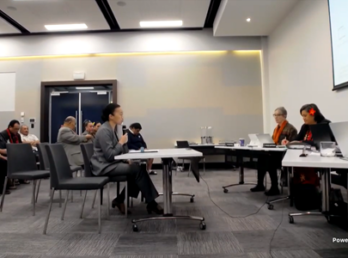Navigating Student Loans: Legal Avenues for Relief in New Zealand articles
Date
6 Dec 2024
Related Expertise
Student loans are a cornerstone of access to higher education in New Zealand, yet their repayment can sometimes pose significant challenges for many borrowers. Life’s unpredictability, administrative errors, or personal hardships can leave borrowers struggling to meet obligations, leading to penalties, late payment charges, and accrued interest, further complicating their financial situation. Fortunately, New Zealand’s legal framework offers avenues that allow borrowers to seek relief, fostering a more equitable repayment system. The Student Loan Scheme Act 2011 was passed by the New Zealand Parliament in December 2010 and came into effect on 1 April 2012. It replaced the previous Student Loan Scheme Act 1992.
Legal Foundations for Relief
The Student Loan Scheme Act 2011 governs the borrowing, repayment, and penalty systems for student loans in New Zealand. It includes provisions enabling borrowers to apply for penalty waivers in valid circumstances. Inland Revenue does not, though, have any legislative authority to reduce or write off the student loan balance except when a borrower is deceased or under NZ bankruptcy. Interest on the loan balance is charged in accordance with Section 63C of the Student Loan Scheme Act 1992 and Section 134 of the Student Loan Scheme Act 2011. A borrower is contractually and legally liable for all correctly accrued interest. Essentially, a student loan is akin to borrowing from a bank, only in this case, the taxpayer is the lender, and the IRD is in charge of collection, if that makes sense.
However, the IRD does have the ability to write off late payment interest and penalties where appropriate. You need to know how to negotiate. You also must explain the circumstances behind why you allowed the loan to be defaulted on for so long, and that can be daunting.
The Student Loan Scheme Act 2011 outlines provisions for borrowers seeking relief in specific circumstances. Sections 146, 147, and 154 detail the mechanisms through which borrowers can apply for relief from late payment interest, hardship, and establish instalment arrangements.
Section 146: Relief from Late Payment Interest
This section empowers the Commissioner to cancel part, or all, of the late payment interest charged to a borrower if deemed equitable. The word ‘deemed equitable’ is not to be taken lightly. Every case will depend on its own facts. This applies regardless of whether the interest has been paid. Upon cancellation, the borrower’s consolidated loan balance is reduced accordingly. Any overpayments resulting from this cancellation are first applied to any unpaid amounts, then to the loan balance, with any remaining excess refunded to the borrower.
Section 147: Hardship Relief for Any Tax Year
Under this provision, the Commissioner may decrease a borrower’s repayment obligation if it’s determined that making the payment would cause serious hardship or if there are other special reasons. However, the Commissioner is restricted from refunding amounts deducted or paid for repayment obligations from tax years prior to the current one, except for the immediately preceding tax year.
Section 154: Instalment Arrangements
This section allows borrowers to apply for financial relief by entering into an instalment arrangement with the Commissioner. Such arrangements enable borrowers to pay their outstanding amounts over time, providing flexibility in managing repayment obligations.
Proactive Engagement and Good Faith
Courts have emphasized the importance of proactive communication between borrowers and lending authorities. Demonstrating good faith efforts, such as initiating correspondence, making partial payments, or renegotiating repayment plans, can significantly strengthen a borrower’s case. Evidence of these efforts underscores sincerity and reinforces the principle of fairness in resolving repayment challenges.
Broader Implications of Penalty Remission
Remission of penalties does not merely serve as relief for the borrower; it reflects a systemic commitment to fairness and equity in the student loan system. Ensuring that penalties are applied judiciously enhances public trust in the student loan repayment system. Borrowers who experience undue hardship often find themselves in precarious financial situations. Compassionate legal provisions act as a buffer, preventing a spiral of financial despair and enabling individuals to recover economically and contribute productively to society.
Moreover, the accessibility of penalty waivers encourages borrowers to engage with the system rather than avoid it. Fear of punitive measures often leads to disengagement, where borrowers cease communication and efforts toward repayment. By providing a fair process for remission, the legal system promotes accountability while acknowledging the realities borrowers face.
The Role of Legal Counsel
Navigating the student loan relief process can be complex, and seeking legal counsel can make a significant difference in achieving a successful outcome. Lawyers specializing in taxation and student loan regulations can guide borrowers through the complex application process for penalty waivers. They can help compile necessary documentation, frame legal arguments effectively, and liaise with the IRD to negotiate a fair outcome. This legal expertise not only simplifies the process but also enhances the likelihood of success.
The Ethical Imperative of Fairness and Striking a Balance
New Zealand’s student loan repayment system is underpinned by a strong ethical commitment to fairness, recognizing the life-altering challenges borrowers face. By integrating fairness principles into the administration of penalties and interest, the system strikes a balance between fiscal responsibility and human compassion. Borrowers seeking to meet their obligations deserve relief from punitive measures that may worsen their difficulties.
Provisions in the Student Loan Act 2011 allow borrowers to argue for waivers based on genuine challenges, ensuring that penalties and interest are not unfairly imposed. This approach not only helps individual borrowers regain financial stability but also strengthens trust in the student loan system. Through sound legal advice and an emphasis on fairness, the system evolves to support personal recovery while contributing to broader societal progress.
Next Steps for Borrowers Seeking Relief:
If you are struggling with student loan repayments and believe you may be eligible for penalty remission, here are some actionable steps to take:
- Assess Your Situation: Review your financial situation carefully. Gather documents like income statements, expense records, or medical reports that demonstrate your hardship.
- Contact the IRD: Reach out to the Inland Revenue Department (IRD) as soon as possible. The earlier you communicate, the better your chances of resolving your situation.
- Propose a Payment Plan: If possible, propose a repayment plan that fits your financial situation. Making partial payments, even if small, can show your commitment to repaying the loan.
- Seek Legal Advice: Consider consulting a lawyer who specializes in tax and student loan regulations. A legal expert can guide you through the process, help compile your documentation, and strengthen your case.
- Apply for Hardship: Submit your application for hardship, providing all the required evidence. Be clear and detailed in your application to improve the likelihood of success.

Dave Ananth, Special Counsel, is passionate about resolving tax matters efficiently and cost-effectively. He is happy to offer a 10-minute complimentary phone consultation to discuss your concerns and explore potential solutions.
Subscribe
Get insights sent direct to your email.




















